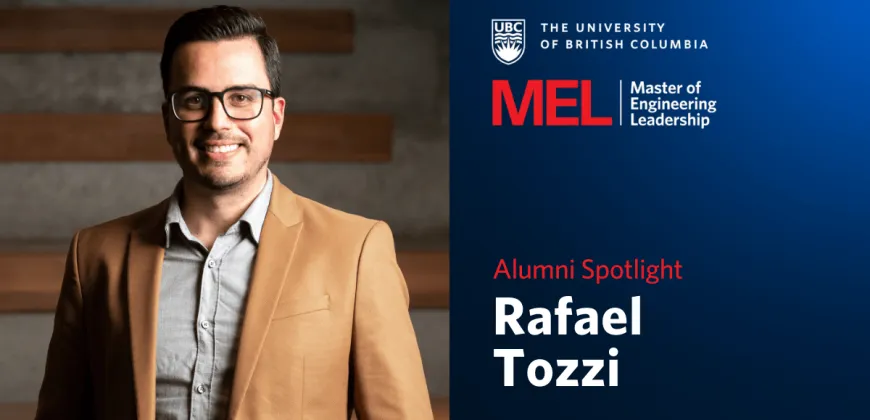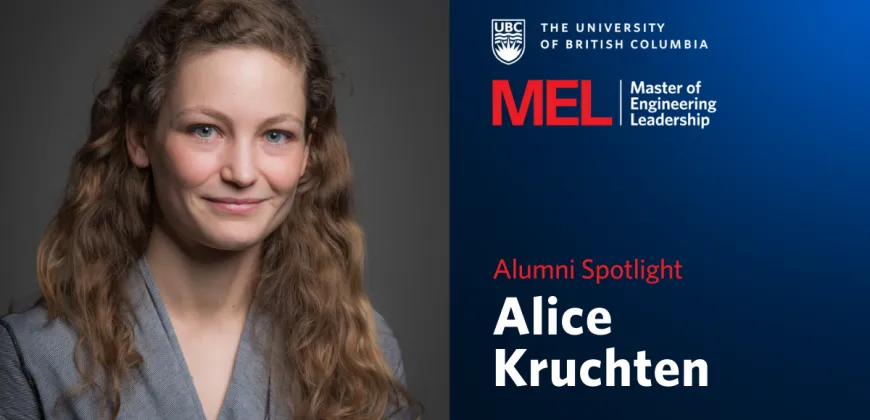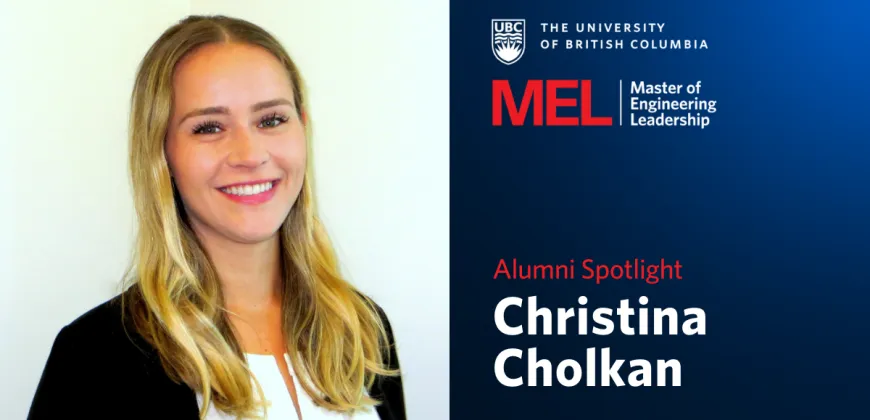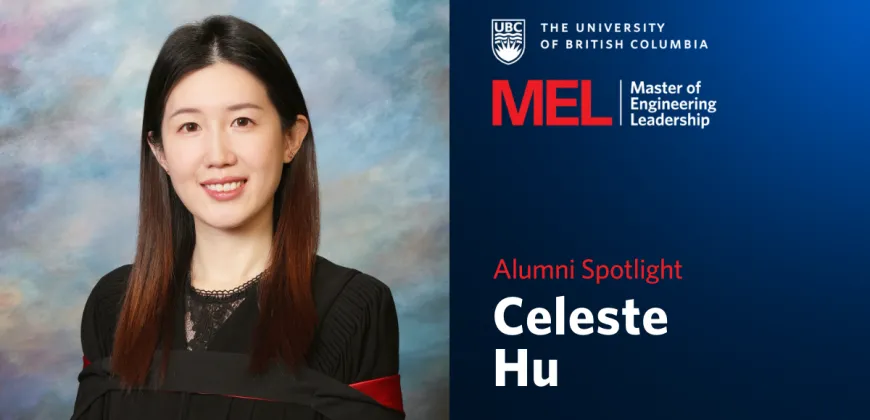Alumni Spotlight: Rafael Tozzi
Alumni Rafael Tozzi is using his engineering, business and leadership skills to lead an international team that is designing part of a water system for a megacity in Saudi Arabia.

After completing an undergraduate degree in civil engineering, Rafael Tozzi went straight into a master’s of engineering with a focus on water resources engineering. He then worked for 15 years for Cobrape, a consulting company in Brazil, during which he also completed an MBA. For the last seven years before moving to Canada, he was the office manager for Cobrape’s office in Curitiba, Brazil, consulting on projects with a focus on water resources and leading and supervising a project team. His group designed water and wastewater systems, and also developed a water management plan focused on ensuring the sustainability of Brazil’s watersheds.
“At times I was struggling to merge the engineering and business side of my work,” he says. “This prompted my interest in pursuing a graduate degree that would help me take a more integrated approach.”
“Of all the programs I looked at, the MEL in Integrated Water Management was the only program I found that seemed to offer the ability to deepen both my engineering knowledge and leadership skills.”
Engineering courses cover the big picture of water management
The program’s technical courses cover a broad range of topics, including water resources and hydrology; water treatment and distribution; design, operation and management; and waste treatment and management.
One thing that stood out for Rafael was the emphasis throughout all the courses on reconciliation with First Nations communities. “My experience in Brazil is that while there may be some discussion with Indigenous people, we don’t consider their opinions as much as we should,” he says.
“Here in Canada, there is a different focus and an understanding of the need to do a better job integrate engineering solutions with Indigenous perspectives to make sure everyone is happy with the process and decisions.”
Rafael also valued the water infrastructure capstone class, taught by Dr. Cheryl Nelms, the general manager of project delivery at Metro Vancouver. His team worked with Kiewit to help them improve a client’s performance on safety and near-miss incidents.
Business classes develop leadership skills
Students in Integrated Water Management take business courses taught through UBC Sauder’s Robert H. Lee Graduate School. Classes cover organizational leadership, strategy and innovation, and strategy and leadership. An intense four-week business boot camp exposes students to six core business competencies, from accounting and contract management to business case development, and students can also take an additional business course of their choosing.
Students from all eight sector-specific MEL specializations attend these classes, along with students from the Master of Health Leadership and Policy. This was a real highlight for Rafael, who says it was a great opportunity to meet new people and work on group projects with professionals from very different industries .
“The way I look at a problem is very different from how others will look at it,” he says.
“The best solutions come when you integrate these different points of views and perspectives.”
He says the leadership and strategy class was very useful for understanding how to apply different frameworks during strategy development, as well as offering practical hands-on tools for managing staff and being a more effective and thoughtful leader.
Advancing into a leadership position
As soon as he arrived in Canada, Rafael began reaching out to industry professionals in his field through LinkedIn to grow his Canadian network. His hard work paid off, and he was hired for a part-time job while going to school that enabled him to use his project management skills and gain some Canadian work experience.
Rafael then began working for the City of Vancouver as a project manager for their groundwater strategy plan. In November 2022, he made the leap to join Advisian, a company under the multinational company WorleyParsons Group, that is working on a planned megacity in Saudi Arabia. Rafael is guiding a project team of 14 leads made up of members from India, Saudi Arabia, Spain, Mexico, the US and Canada, working as the lead engineer for the pump station and outfall station.
“In line with the project’s sustainability pillar, one of the objectives is zero liquid discharge,” he says. “That’s an intriguing technical issue that may require developing new technologies. For me personally, this is also an incredible opportunity to work on an ambitious project and lead a team of people from around the world.”
For students from outside of Canada who are considering the MEL, Rafael encourages a sense of humility. “You need to be humble and understand that you will probably take a step back in your career before you can take some steps forward,” he says.
“You won’t have the same level of position, but this program will help you understand business life in Canada and gain confidence in your skills. I certainly wasn’t expecting to get a role like this as quickly as it happened.”


